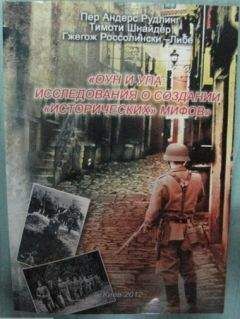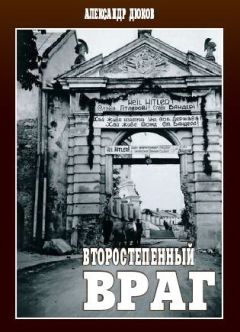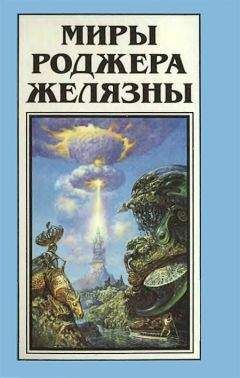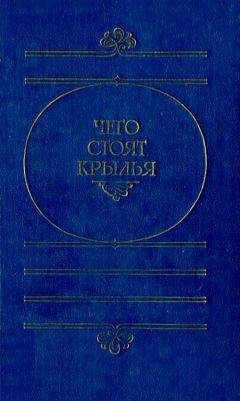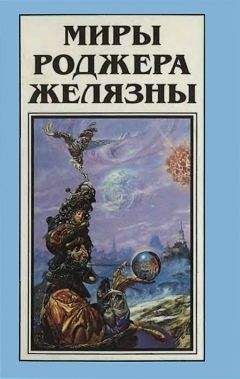202
Petro Mirchuk (1913–1999) was arrested by the Germans in 1941 and spent the war in internment camps, including Auschwitz. Immediately after the war he was responsible for OUN(b) propaganda in occupied Germany. He was one of Stepan Bandera’s close allies and a stern adherent of totalitarianism. Mirchuk’s writings are representative of the sort of pseudo-scholarship the OUN(b) produced after the war. He received a J.D. in 1941 and a Ph.D. in 1969 from the Ukrainian Free University in Munich, and wrote several widely cited chronicles on the history of the OUN. He combined academic activities with high-ranking positions in the OUN(b). Posivnych, Zhyttia i diial’nist’ Stepana Bandery, 140. Mirchuk was also used as an “expert” for the defense during the OSI hearings on deportation.
Markus Huss, “Male Historians in Exile: Constantly Relating to Their Background,” Baltic Worlds 3, no. 1 (2010): 17–18.
Some of the more prominent examples are found in the writings of Mykola Riabchuk, according to whom “Ukraine is not just a ‘normal’ nation,” but rather, “a postcolonial country shared near equally by the ‘aboriginal’ and ‘settler’ communities.” Riabchuk juxtaposes the “aboriginal” Ukrainains to the Sioux population with (non-Ukrainian) “settlers” and invokes Hollywood images of Dances with Wolves. Under these conditions, Riabchuk argues that a part “of Bandera’s legacy remains relevant — that of patriotism, national solidarity, self-sacrifi ce, idealistic commitment to common goals and values.” Mykola Riabchuk, “Bandera’s Controversy and Ukraine’s Future,” Russkii vopros, no. 1, 2010: http://www.russkiivopros.com/?pag=one&id=315&kat=9&csl=46#_edn13 (accessed April 28, 2010); idem, “Ukraine: Revisiting a ‘Success Story’?” Transitions Online, issue 10/17/2006: 4. On Riabchuk’s use of postcolonial rhetortic in the service of nationalism, see Rudling, “Iushchenkiv fashyst,” in Amar, Balyns’kyi, and Hrytsak, Strasti za Banderoiu, 254, and Roman Dubasevych, “Dity rozpachu,” zakhid. Net, December 20, 2010: http://zaxid.net/article/82258/ (accessed December 20, 2010).
Following president Yushchenko’s designation of Stepan Bandera as Hero of Ukraine in January 2010, CIUS director Zenon Kohut defended Bandera and denied the fascist nature of the OUN. Zenon Kohut, “Ukrains’kyi natsionalizm,” 145–146, and Rudling, “Iushchenkiv fashyst.”
Only in the past few years have scholars started to give these institutions serious attention. See, for instance, O’Connor, “The Munich Institute for the Study of the USSR;” Holian, “Anticommunism in the streets”; Julia Delande, “‘Building a Home Abroad’—A Comparative Study of Ukrainain Migration, Immigration Policy and Diaspora Formation in Canada and Germany after the Second World War,” Ph. D. Dissertation, Hamburg University, 2006; Huss, “Male Historians in Exile”; Rossoli#ski-Liebe,“Celebrating Fascism.”
Frank Golczewski, “Besprechung,” Jahrbuch für Geschichte Osteuropas, 44, no. 4 (1996): 592 ff, cited in Bruder, “Den ukrainischen Staat,”12.
Berkhoff and Carynnyk, “The Organization of Ukrainian Nationalists,” 149; Himka, ”War Criminality,” 11; Bruder, “Den ukrainischen Staat,” 12–13; Krzysztof Lada, “Creative Forgetting: Polish and Ukrainian Historiographies on the Campaign against the Poles in Volhynia during World War II,” Glaukopis, no. 2/3 (2005): 346; Himka, “First Escape: Dealing with the Totalitarian Legacy in the Easrly Postwar Emigration,” paper presented at the Workshop on “National Politics and Population Migrations in Central and Eastern Europe,” Center for Austrian Studies, University of Minnesota, Minneapolis, 7–8 April, 2006, 7; idem, “Central European Diaspora,” 22; Jeffrey Burds, “Access Restrictions in Central European Archives,” round table discussion at the fortieth national convention of the American Association for the Advancement of Slavic Studies, Philadelphia, November 23, 2008.
Thus, only in 1996 did a complete version of Stets’ko’s Akt of June 30, 1941, retaining the statement that the Ukrainian state would “cooperate closely” with Nazi Germany, appear in print. Volodymyr Serhiichuk, ed., OUN-UPA v roky viiny: Novi dokumenty i materialy (Kyiv: NAN Ukrainy, 1996), 239–240. Confronted with primary documents that establish the anti-Semitic nature of the OUN, pronationalist historians have sometimes dismissed them as Soviet forgeries. See, for instance, Taras Hunczak, “Problems of Historiograhy: History and Its Sources,” Harvard Ukrainian Studies 25 (2001): 129–142. For a discussion of this, see Himka and Kurylo, “Iak OUN stavylasia do ievreiv?” 253.
Burds, “Access Restrictions,” 2008.
Himka, “War Criminality,” 9–24; idem, “Central European Diaspora,”17–31; Rudling, “Iushchenkiv fashyst,” 237–309; Rossoli#ski-Liebe, ”Celebrating Fascism.”
Lew Shankowsky, “Pro problemu antysemityzmu v Ukraini,” Svoboda, February 3, 1960, cited in Himka, “War Criminality,” 10.
Berkhoff and Carynnyk, “The Organization of Ukrainian Nationalists,” 152, citing Bohdan Osadczuk, “Curesy i cymesy,” Zustriczi 9 (1995): 30. Yet, during the war, Osadczuk (1920–2011) published anti-Semitic material in the collaborationist press in occupied Poland. Covering the Ustaše press for Krakivs’ki Visti, Osadczuk reported: “The mass graves in Vinnytsia, Hrvatski Narod states, is new proof of the politics of destruction that the Jews from the Kremlin have conducted among the Ukrainian people. The murdered Ukrainians again throw guilt on Stalin and his Jewish collaborators and summon the world to an implacable struggle against the Jewish-Bolshevik threat, which would like to bring upon Europe the same fate that the defenseless vicitms in Vinnytsia met.” B[ohdan] O[sadchuk], “Kryvava propahanda Ukrainy: Vynnytsia v evropeis’kii presi,” Krakivs’ki visti, August 7, 1943., cited in John-Paul Himka, “Ethnicity and the Reporting of Mass Murder: Krakivs’ki visti, the NKVD Murders of 1941, and the Vinnitsa Exhumation,” paper presented at the University of Alberta Holocaust Workshop, January 14, 2005, 13.
Taras Hunczak, “Ukrainian-Jewish Relations during the Soviet and Nazi Occupations,” in Yuri Boshyk, ed., Ukraine during World War II: History and Its Aftermath (Edmonton: CIUS, 1986), 42, 45.
One of the initiators of the Waffen-SS division Galizien, Kubijovy% endorsed ethnic cleansing of Ukrainian lands and published anti-Semitic material during the Holocaust. Volodymyr Kubijovye, “Pered maiestatom nepovynnoi krovy,” Krakivs’ki visti, July 8, 1941, cited in John-Paul Himka, “The Reception of the Holocaust in Postcommunist Ukraine,” in Joanna Michlic and John-Paul Himka, eds., Bringing to Light the Dark Past: The Reception of the Holocaust in Postcommununist Europe (forthcoming); John-Paul Himka, “Ethnicity and the Reporting of Mass Murder,” 19; Per A. Rudling, “Organized Anti-Semitism in Contemporary Ukraine: Structure, Infl uence and Ideology,” Canadian Slavonic Papers/Revue canadienne des slavistes 48, nos. 1–2 (March-June 2006): 96.
Bohdan Wytwycky, “Anti-Semitism,” in Volodymyr Kubijovye, ed., Encyclopedia of Ukraine (Toronto: CIUS Press 1984), 1: 82. On Wytwycky’s writings on Jews as communists and NKVD men, see Rudling, “Organized Anti-Semitism,” 98–99, n. 81.
Petro Mirchuk, My Meetings and Discussions in Israel: Are Ukrainians “traditionally anti- Semites”? (New York: Ukrainian Survivors of the Holocaust, 1982), 121.
Bruder, “Den Ukrainischen Staat,” 167, n 69, citing Petro Mirchuk, In the German Mills of Death, 1941–1945, 2d ed. (New York, 1985), 17.
Mirchuk habitually refers to Poles as “degenerates,” Jews as blood-suckers, Russians as Mongols and tyrants. Mirchuk, My Meetings and Discussions in Israel, 116, 118, 121, 122. He accused Jews of controlling the U.S. courts. “What is ‘Jewish justice’ doing in American courts? And why ‘Jewish’ and not American justice? Are we a colony of theirs? It’s not enough that our government gives Israel billions of our tax money each year for nothing, and now American courts must yield to Jewish demands?. Goebbels himself wouldn’t have been able to turn the Americans against the Jews the way they did it themselves. I repeat again and again, not as an ‘anti-Semite’ but as your friend: the abuse of your infl uence in America for the purpose of persecuting innocent Ukrainians by accusing them of cooperation with the Germans — is merely sowing the wind. And everyone is familiar with the proverb: ‘Who sows in the wind, reaps the storm!’ Think over this carefully!. I’m not threatening you with pogroms, I’m only warning you. All of those who have come to America from Eastern European counties, occupied by the Bolsheviks, know a great deal about the role of the Jews in the recent history of these lands — a role which, for your own good, it would be better to cover-up before the American public. But with these trials of ‘war criminals’—the so-called murderers of innocent Jews— you’re provoking them to reveal everything incriminating against the Jews. Is this what you want? These East-European émigrés have children and grandchildren, born and raised as American citizens. When you maliciously and groundlessly accuse their forbearers of imaginary crimes — and even generalize the accusation by claiming for example that all Ukrainians ‘are anti-Semites’—then they, in turn, seeking to know the truth, learn from their parents about the role of the Jews in the apparatus of the bloody CheKa, GPU, NKVD, KGB; and they pass on this information to all their American acquaintances, co-workers, professors, journalists, et al. Tell me, do you really want that?” Ibid., 124–127.
Mirchuk, My Meetings and Discussions in Israel, 66. (Srul is a derogarory term for Jews.)
Orest Subtelny, Ukraine: A History (Toronto: University of Toronto Press, 2000), 489. This view came to have an impact also on Ukraine, as Subtelny’s textbook, in Ukrainian translation, was widely used in Ukraine during the fi rst years of independence. Marples, Heroes and Villains, 7, 23, 40–41.
In a discussion at the Fifth Annual Danyliw Research Seminar in Contemporary Ukrainian Studies, the Chair of Ukrainian Studies, the University of Ottawa, October 30, 2009, Potichnyj argued that Jews, killed by the UPA, were killed because they were communists. Interviewed by the Washington Post, he elaborated on this idea. “As for the killings of Jews and Poles, Potichnyj argues that no matter where guerillas fi ght for liberation, it’s a messy affair. The Poles provoked the Ukrainians, he said. ‘With respect to Jews,’ he said, ‘obviously, in the situation there must have taken place some killing of the Jews, although in 1943, when the UPA was quite strong, there were hardly no Jews left because the Germans had, unfortunately, killed them all off. But there were some remnants, and the remnants were either working with the Ukrainian underground or they were working with the Soviets.’ Those allied with the Red partisans were obviously enemies of the underground, he said.” John Pancake, “In Ukraine, movement to honor members of WWII underground sets off debate,” Washington Post, January 6, 2010: A7; John Paul Himka [Ivan-Pavlo Khymka], “Chy ukrains’ki studii povynni zakhyshzhaty spadshchynu OUN-UPA?” in Amar, Balyns’kyi, Hrytsak, Strasti za Banderoiu, 163.
“What is also indisputable is that many Jews served in the Soviet secret police during that period of Soviet rule in Western Ukraine. Naturally, Himka fails to mention the Jewish complicity which may have pointed to the motive of any number of oppressors. While being Jewish in and of itself, certainly, was not reason to be killed, being Jewish was not immunity from being attacked when you sided and fought with the enemy.” Askold S. Lozynskyj, “Rewriting history: An evidentary persepective,” KyivPost, February 16, 2010: http://www.kyivpost.com/news/opinion/op_ed/detail/59650/print/ (accessed February 22, 2010).
Volodymyr Serhiichuk, Nasha krov — na svoii zemli (Kyiv: Ukrains’ka vydavnycha spilka, 2000), 56–57; Volodymyr Serhiichuk, Trahediia Volhyni: Prychynyi perebih pol’s’ko-ukrains’koho konfl iktu v roky druhoi svitovoi viiny (Kyiv: Ukrains’ka vydavnycha spilka, 2003). For a discussion on Serhiichuk, see Marples, Heroes and Villains, 232–233, 236–237.
See the interview with Volodymyr V’’iatrovych, to which we will return to later. Masha Mishchenko, “Pratsivnyk SBU: My izdyly v Izrail’ pobachaty dos’e proty Shukhevycha — a ioho prosto ne isnue,” UNIAN, March 25, 2008: http://unian.net/news/print.php?id=242913 (accessed April 8, 2008).
For instance, on November 10, 2010 during the trial in Kyiv regarding the legality of Yushchenko’s collective designation of the OUN and the UPA as Heroes of Ukraine, Petro Mykytovych Perepust, representing the Sumy chapter of the far-right Ukrainian National Assembly-Ukrainian National Self Defense (UNA-UNSO), justifi ed the “murder, dismemberment, and slaughter [i ubyvaty, i pyliaty, i rizati] — that is done all across the world when one people fi ght for their independence, they kill other people.” Legal argument, case 2a-6732/10, “Za Pozovom Vitrenko Natalii Mykhailivni do Prezydenta Ukrainy shchodo vyznannia nezakonnym Ukazu Prezydenta Ukrainy vid 28 sichnia 2010 roku No. 75/2010 ‘Pro vshanuvannia uzhastnykiv borot’by za nezalezhnist’ Ukrainy u XX stolitti,” Okruzhnyi Administratvnyi sud mista Kyeva, November 10, 2010. Press release, November 12, 2010. The proceedings are also available online: http://www.youtube.com/watch?v=znQjFCNCAXg (accessed November 12, 2010). Thanks to Krzysztof Janiga for this material.
In an interview, the 87-year-old Volhynian UPA veteran Ivan Hnatevych Kisliuk (b. 1923) presses the book Armiia bez Derzhavy, by the founder of the original UPA, into my hands, and told me to open to page 253. It reads: “In the end of July 1943 the General Staff of the UNRA issued an appeal to the Ukrainian people, in which it protested against all those measures, which were condemned as the disreputable acts of blinded totalitarians, and emphasized that the full responsibility for the crimes falls upon the leader of the OUN Bandera, Mr. Mykola Lebed’- Ruban.” “See, Ruban, Jew! [zhyd!],” Mr. Kisliuk said, pointing at Lebed’s Ashkenazi-sounding nom de guerre, which to him proved Jewish responsibility for the Volhyn massacres. Bul’ba-Borovets’, Armiia bez derzhavy, 253. Personal interview, Kyiv-Troishchina, Ukraine, September 23, 2010.
